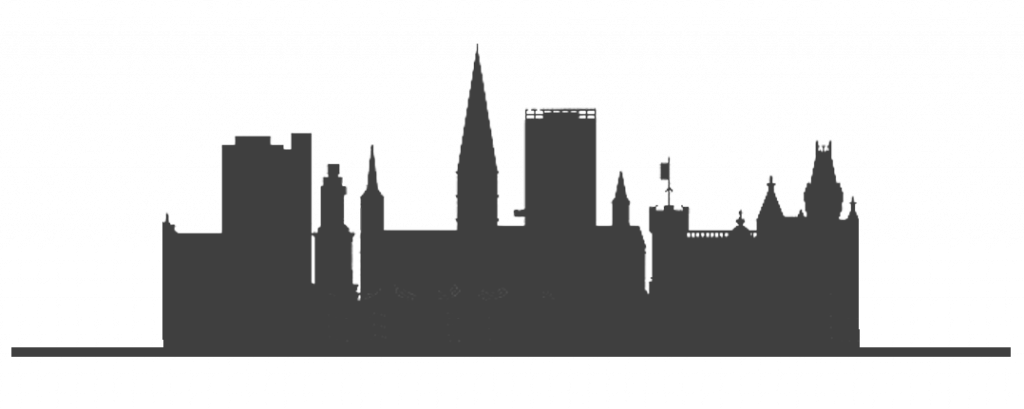The translation is in progress and will be available soon.
Herzlich Willkommen in Deutschland.
Was musst du als geflüchteter Mensch mit Behinderung jetzt wissen.
Zuerst: Wir freuen uns, dass du da bist.
In Deutschland gibt es verschiedene Gesetze, die wichtig sind
für Menschen mit Behinderung.
In diesen Gesetzen steht auch:
Menschen mit Behinderung haben ein Recht auf kulturelle Teilhabe.
Darum gibt es diesen Kultur-Guide.
An vielen Orten werden Menschen mit Behinderung mit·gedacht.
Viele Menschen an vielen Orten
begegnen Menschen mit Behinderung offen.
Es gibt in den letzten Jahren immer mehr inklusive Angebote.
Aber:
In Deutschland gibt es auch seit vielen Jahren ein Fürsorge·system.
Das heißt:
Viele Menschen denken:
Menschen mit Behinderung müssen geschützt werden.
Es ist besser, wenn andere für sie entscheiden.
Immer mehr Aktivist*innen mit Behinderung setzen sich dagegen zur Wehr.
Sie setzen sich für ein neues und selbstbestimmtes Bild von
Menschen mit Behinderung ein.
Mit dem Kultur-Guide kannst du heraus·finden:
Was kannst du in Köln und Bonn erleben?
Wo gibt es barriere·freie Kultur·angebote?
Und wo gibt es spezielle Angebote für Geflüchtete?
Allgemeine Informationen
Teilhabe an Kultur für Menschen mit Behinderung
Schwerbehindertenausweis
Der Schwerbehindertenausweis gilt überall in Deutschland. Er ist in allen Bundesländern gleich. Der Schwerbehindertenausweis ist ein Nachweis über die Behinderung eines Menschen. Mit diesem Ausweis können Menschen mit Behinderung oder chronischer Erkrankung bestimmte Nachteilsausgleiche bekommen. Und sie können die Rechte als behinderter Mensch in Anspruch zu nehmen. Was sind Nachteilsausgleiche?
Zum Beispiel: Kostenlose Fahrten im Nahverkehr oder Vergünstigungen bei Eintrittsgeldern.
Auf dem Ausweis steht der Grad der Behinderung. Er wird in Prozent angegeben. Die Abkürzung dafür ist GdB.
Außerdem sind auf dem Ausweis bestimmte Merkzeichen angegeben. Einige von ihnen werden hier erklärt.
Für die kulturelle Teilhabe können diese Merkzeichen wichtig sein:
B – Dieses Merkzeichen steht für Begleitperson. Es bedeutet: Die behinderte Person ist auf eine Begleitperson angewiesen ist. Daher hat die Begleitperson von Menschen, die ein “B” im Schwerbehindertenausweis vermerkt haben, in vielen kulturellen Einrichtungen freien oder ermäßigten Eintritt.
aG – Dieses Merkzeichen steht für außergewöhnlich gehbehindert. Menschen mit diesem Merkzeichen können einen Parkausweis für Menschen mit Behinderung beantragen. Mit diesem Parkausweis können Sie auf Behindertenparkplätzen parken. Diese Parkplätze sind oft in der direkten Umgebung von Kulturorten oder öffentlichen Gebäuden und Plätzen. Sie sind breiter als durchschnittliche Parkplätze. So gibt es genügend Platz zum Ein- und Aussteigen.
H, Bl und TBl – Diese Merkzeichen stehen für hilflos (H), blind (Bl) und taubblind (TBl). Personen, deren Behindertenausweise diese Merkzeichen beinhalten, können eine Wertmarke beantragen. Mit dieser Wertmarke können Menschen mit Behinderung die den Nahverkehr kostenlos nutzen.
RF – Dieses Merkzeichen steht für Rundfunk/Fernsehen. Menschen, deren Behindertenausweis dieses Merkzeichen beinhaltet, können eine Befreiung des Rundfunkbeitrags beantragen. Der Rundfunkbeitrag wird weiter unten genauer erklärt.
Assistenz
Manche Menschen brauchen wegen ihrer Erkrankung oder Behinderung Hilfe im Alltag, bei der Arbeit oder in der Freizeit. Für diese Menschen gibt es die Möglichkeit, Assistenz zu bekommen. Also eine helfende Person, die sie zu bestimmten Zeiten oder den ganzen Tag unterstützt. Ob Sie einen Anspruch auf Assistenz haben, hängt von Ihrer Behinderung und dem Grad Ihrer Behinderung ab. Sie können sich zu diesem Thema beraten lassen. Es gibt viele verschiedene Beratungsstellen dafür. Dort finden Sie Unterstützung bei der Beantragung einer Assistenz. Und Sie können sich über weitere Hilfsangebote informieren.
Ein Ausweis für Ermäßigungen
Manche Menschen haben im Alltag nur wenig Geld zur Verfügung. In vielen deutschen Städten können diese Menschen einen bestimmten Ausweis beantragen. In jeder Stadt hat dieser Ausweis einen anderen Namen. In Köln heißt er “Köln-Pass”, in Berlin heißt er “Berlin-Ticket S” usw.
Mit diesem Ausweis bekommt man vergünstigten Zugang zu verschiedenen Kultur-, Freizeit- und Bildungsangeboten. Zum Beispiel vergünstigter Eintritt für Museen, Schwimmbäder und Theateraufführungen. In den meisten Fällen müssen Sie diesen Ausweis bei Ihrer Stadt beantragen. Manchmal bekommen Sie ihn automatisch. Ob es in Ihrer Stadt einen solchen Ausweis gibt, können Sie im Internet nachschauen. Suchbegriffe dafür sind zum Beispiel: “Ausweis, Vergünstigung, der Name Ihrer Stadt”.
Für die Beantragung eines solchen Ausweises müssen Sie in der Regel nachweisen, dass Sie wenig Geld zur Verfügung haben.
Öffentliche Verkehrsmittel
Wenn Sie in Deutschland mit öffentlichen Verkehrsmitteln unterwegs sind, gibt es einiges zu beachten. Der öffentliche Verkehr teilt sich in den Nahverkehr und den Fernverkehr auf.
Der öffentliche Verkehr besteht aus den Bussen und Bahnen, die Sie innerhalb Ihrer Stadt von einer Haltestelle zur nächsten bringen. Die Barrierefreiheit des Nahverkehrs ist sehr unterschiedlich. Sie können sich auf den Internetseiten der örtlichen Verkehrsbetriebe darüber informieren. Dort finden Sie auch entsprechende Liniennetzpläne und Abfahrtszeiten.
Möchten Sie von einer Stadt in eine andere fahren? Dann müssen Sie in den meisten Fällen mit dem Zug oder einem Fernbus fahren.
Wenn Sie mit dem Zug fahren, können Sie auf der Internetseite oder in der App der Deutschen Bahn nach der Zugverbindung suchen: https://www.bahn.de/
Dabei gibt es die Regionalbahnen, Intercity-Züge (IC) und den Intercity Express (ICE). Viele Regionalbahnen sind mit dem Rollstuhl zugänglich. Die meisten Intercity-Züge (IC) und alle Züge des Intercity-Express (ICE) sind nur über Stufen zu erreichen. Brauchen Sie Hilfe beim Einstieg in Ihren Zug? Zum Beispiel in Form einer Rampe? Dann müssen Sie das vorher anmelden. Die Anmeldung muss bis 20 Uhr am Tag vor Ihrer Reise bei der Mobilitätsservice-Zentrale (MSZ) eingegangen sein. Das können Sie per Telefon, per Fax, per E-Mail oder über ein Online-Formular erledigen. Hier finden Sie alle weiteren Infos dazu:
https://www.bahn.de/service/individuelle-reise/barrierefrei/reiseplanung-und-beratung
Nicht alle Bahnhöfe in Deutschland sind barrierefrei ausgebaut. Darum sollten Sie vor Beginn Ihrer Reise nachschauen: Sind die Bahnhöfe, die Sie nutzen möchten, für Sie barrierefrei? Das können Sie in der App “Bahnhof Live” nachschauen. Oder auf dieser Internetseite: https://www.bahnhof.de/suche
Dort sind folgende Barrierefreiheitsaspekte vermerkt:
- stufenfreier Zugang
- Bahnsteighöhe >55cm
- Zuganzeiger
- Lautsprecheranlage
- taktile Handlaufschilder
- kontrastreiche Wegeleitung
- Treppenstufenmarkierung
- die Funktionalität der Aufzüge am Bahnhof
Fernbusse sind häufig eine günstigere Alternative zu einer Reise mit dem Zug. Es gibt viele verschiedene Firmen, die Fahrten mit einem Fernbus anbieten. Die bekannteste Firma ist Flixbus. Auf der Internetseite von Flixbus kann man die passende Reiseroute suchen.
Fernbusse sind in der Regel nicht für Menschen im Rollstuhl zugänglich, da am Eingang einige Stufen überwunden werden müssen.
Rundfunkbeitrag
In Deutschland müssen alle Menschen den Rundfunkbeitrag bezahlen. Der Beitrag ist für die Nutzung von Radio, Fernsehen und Internet. Mit diesem Beitrag werden die öffentlich-rechtlichen Medien finanziert.
Diese Gebühr wird immer für einen Haushalt gezahlt. Also wenn mehrere Menschen als Familie oder Wohngemeinschaft zusammen leben, müssen diese nur einmal den Rundfunkbeitrag bezahlen. Der Beitrag beträgt im Moment 18,36 € im Monat.
Es gibt Personen, die diesen Beitrag nicht zahlen müssen. Zum Beispiel Menschen mit wenig Geld. Oder taubblinde Menschen. Wenn Sie den Beitrag nicht zahlen müssen, müssen Sie eine Befreiung von der Rundfunksbeitragspflicht beantragen. Dort müssen Sie nachweisen, dass Sie wenig Geld zur Verfügung haben.
Menschen mit Behinderung, die in Ihrem Behindertenausweis das Merkzeichen “RF” vermerkt haben. Diese Personen bekommen eine Ermäßigung. Sie müssen weniger Rundfunkbeitrag bezahlen. Die Ermäßigung muss beantragt werden.
Auf dieser Internetseite kann die Befreiung oder Ermäßigung beantragt werden: https://www.rundfunkbeitrag.de/buergerinnen_und_buerger/formulare/befreiung_oder_ermaessigung_beantragen/index_ger.html


